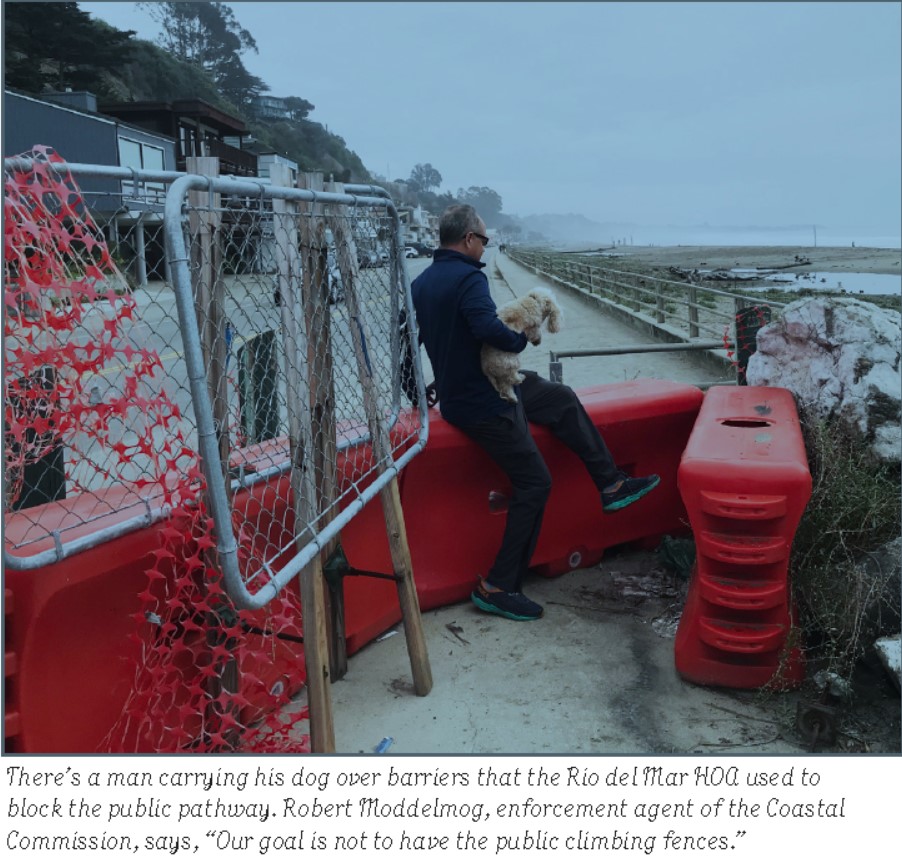Martinis in Calcutta. Ouzo in Cypress. Ales in Tasmania. Single malts on the Orkney islands.
A number of elements helped launch the surprising local brand that is West Peak Sparkling Spirits, an antidote to a hard seltzer market dominated by Big Beverage.
But to hear Santa Cruz mom and pop behind the canned cocktails tell it, itinerant drinking lies at the heart of their efforts.
“Each can…is an inspired cocktail that will transport you to bars, dance halls, and cantinas across the globe,” they write on the website. “We believe life is…a calling for adventure.”
For Jamie and Nick Sanyal, it also helped that they spent careers in corporate marketing and supply chain logistics with the likes of Tradin Organics, SunOpta and Moss Landing’s Sweet Earth Natural Foods, learning how to develop what Nick calls “a category challenger.”
From there they observed two things. One, beer was making them feel sluggish. Two, the seltzers and canned cocktails on the market left something to be desired as far as taste and packaging.
“Not just the liquid, but from a branding perspective, the tall white skinny cans void of personality didn’t feel right,” Nick says. “We realized a brand that captured the energy and uniqueness of Santa Cruz would be embraced by like-minded people up and down the coast and beyond.”
West Peak’s four flavors—Palo Madre Paloma (my go-to of the group), Fathom Falls Cooler, Saddle Creek Spritz and a Buscadero Bay Punch—clock in at 6% ABV, and enjoy a balance between effervescence and fruit with a legit spirits backbone.
The result is neither seltzer or cocktail, and a nice alternative in other ways, too.
“People know the beverage industry is mostly dominated by corporate and celebrity-owned brands,” Jamie says. What most people find surprising is that a small family-owned company such as ours is starting to break through.”
drinkwestpeak.com
YES PLEASE
Hook & Line (105 Walnut Ave., Santa Cruz) aims to open in the former Soif as soon as Thursday, April 11. Chef Santos Majano and business partner Leija Borovac have reinvented the look and feel with a more integrated bar area, added seats and a 15-seat parklet. The bar will do a few craft cocktails, and sustainable seafood will shine on the menu, in keeping with the name. Preliminary menus feature hot smoked trout, wild striped bass, halibut ceviche, marinated scallops, slow-cooked whole snapper and a raw bar, instagram.com/eathookandline.
CLASSY CLASSES
From the Education is Tasty File: “The Perfect Pair: A Cabrillo Culinary and Wine Showcase” unfurls April 27 courtesy of Cabrillo College Culinary Arts department and wineries from the Santa Cruz Mountains. First the historic Sesnon House hosts two wine tutorials (“Sensory Evaluation” and “Taste the Terroir”) led by Deborah Parker Wong, global wine editor for The Tasting Panel and professor of Wine Studies at Cabrillo College. Then comes a “walk-around tasting, wherein, keeping with the theme, 11 teams of students pair with 11 wines by SCM wineries try to pull off the best complementary combos, all benefitting Cabrillo College Foundation, winesofthesantacruzmountains.com.
PROGRESS IS REAL
The rescheduled Cesar Chavez Day of Service with Homeless Garden Project is 9:30am-2pm this Sunday, April 14, homelessgardenproject.org/…Cal Native Plant Society, Santa Cruz County Chapter works its healing magic with your help at Quail Hollow Habitat Restoration, 10am-1pm April 20, message Linda Brodman, re*****@*****ll.net…Santa Cruz Permaculture has all sorts of cool stuff going on, including a Herbalism & Medicine-Making course beginning April 13, and its Strawberry Festival at the SCP Farm on Highway 1 in Davenport Saturday, May 18—face painting, scavenger hunt, farm tours, strawberry shortcake and parfait, strawberry lemonade, persimmon lassi, quinoa veggie bowls, and other farm goodies for sale, $5/adult, $1/kids, https://santacruzpermaculture.com.



































